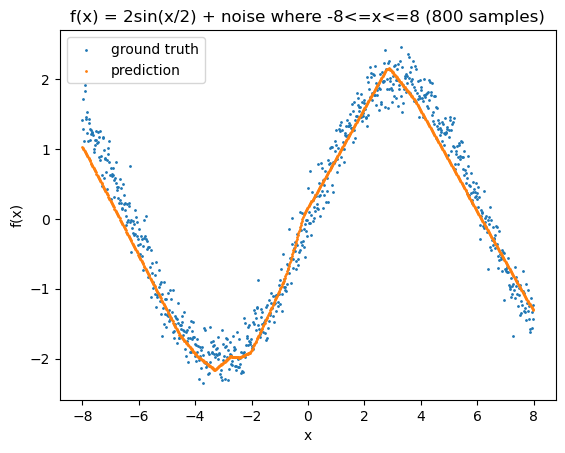MatProp is a compact backpropagation engine and neural network framework that provides a PyTorch-like interface for defining and training neural networks using autograd-supported matrix operations. It has been thoroughly tested against PyTorch to ensure that its calculations of values and gradients are correct, and despite its capabilities, it has a codebase of only about 300 lines of code with ample documentation.
As simple as it gets!
pip install matpropThe following shows the fit and training code of a fully-connected neural network on a sine wave, full example in nn_demo.ipynb
model = MLP(n_inputs=1, layer_outputs=[12, 12, 1])
lr = 0.01
loss_hist = []
for epoch in tqdm(range(500)):
# forward pass
preds = [model(x) for x in Xs]
loss = mse_loss(preds, ys)
# backward pass
model.zero_grad()
loss.backward()
# update
for p in model.parameters():
p.data -= lr * p.grad
loss_hist.append(loss.data.squeeze())The following shows some MatProp Matrix operations with full autograd support, full example and outputs in matrix_demo.ipynb
A = Matrix([[1., 2.]])
B = Matrix([[3., 2.],
[2., 1.]])
AB = A @ B
AB2 = AB ** 3
Relu = AB2.relu()
Sum = Relu.sum()
Sum.backward()The test suite tests agreement between MatProp Matrix operations and
PyTorch Tensor operations, both in the foward and backward passes.
To run them, simply run python -m pytest in the base project
directory. (PyTorch needed obviously)
MatProp was heavily inspired by Andrej Kaparthy's Micrograd and his YouTube video explaining it in detail. However, MatProp is expanded and shifted in scope by being defined with matrix operations rather than scalar operations. I highly recommend giving his video a watch, it is the single best explanation on how backprop works I have seen.
